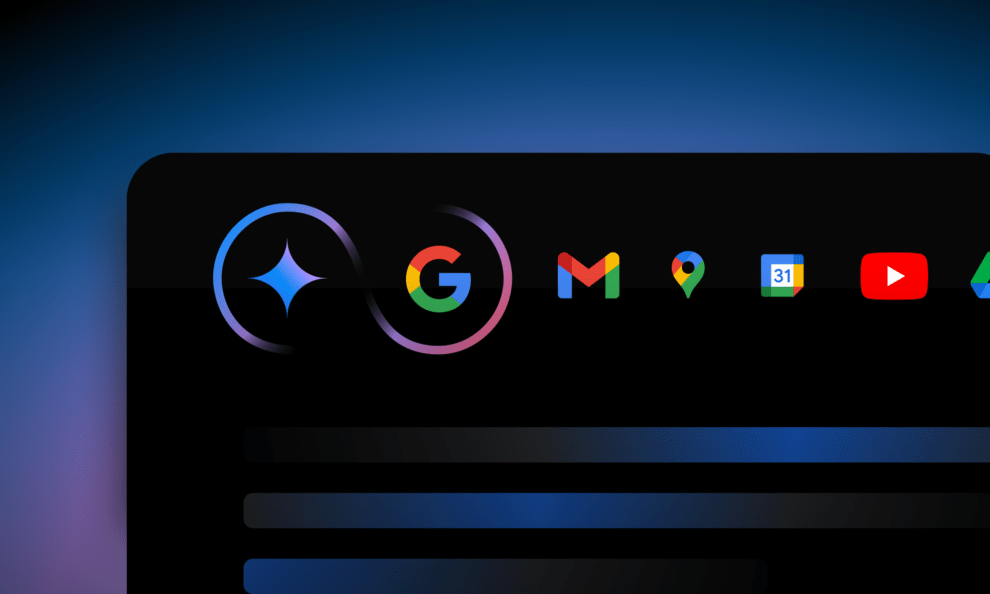Google is making a significant shift in how users access its AI-powered Gemini service on Apple devices. In a move aimed at streamlining the user experience, the tech giant has announced that Gemini will no longer be available through the main Google app on iOS. Instead, iPhone and iPad users are being directed to download the standalone Gemini app, which offers a more comprehensive and feature-rich platform for interacting with the AI tool.
This decision marks a pivotal moment in Google’s strategy for Gemini, underscoring the company’s commitment to fostering a dedicated ecosystem around its advanced AI capabilities. For months, iOS users relied on the Google app as one of the primary gateways to Gemini, thanks to an integrated switcher that allowed seamless toggling between traditional search results and AI-generated responses. However, as Google continues to expand Gemini’s functionality, it has become clear that the standalone app is better suited to deliver the full breadth of what the technology can offer.
A Strategic Shift Toward Specialization
When Gemini first launched on iOS, it was tightly woven into the fabric of the Google app. This integration made sense initially, as it provided users with an easy way to explore Gemini without needing to download additional software. Over time, though, the limitations of this approach became apparent. Features like Gemini Live—a dynamic, voice-based interaction mode—were conspicuously absent from the Google app, leaving users who preferred the convenience of the integrated option at a disadvantage.
Recognizing these constraints, Google began directing its efforts toward developing the standalone Gemini app, which debuted in November 2024. The new app quickly gained traction among early adopters, offering not only core functionalities but also cutting-edge enhancements designed to elevate the user experience. By consolidating all of Gemini’s capabilities under one roof, Google ensured that users could take full advantage of its AI innovations without compromise.
Now, as part of its ongoing optimization efforts, Google is phasing out Gemini support within the main Google app entirely. Users have already begun receiving notifications informing them of the change, with emails explicitly stating, “Gemini is no longer available in the Google app.” These messages emphasize that the standalone Gemini app represents the future of the platform, urging users to make the transition by downloading it from the App Store.
Streamlining Access for Enhanced Functionality
While some may view this development as inconvenient, Google’s rationale is rooted in creating a more cohesive and robust environment for Gemini users. The standalone app allows for greater flexibility in implementing updates, rolling out new features, and refining performance based on user feedback. Additionally, separating Gemini from the Google app reduces clutter and ensures that each application serves a distinct purpose, enhancing usability across the board.
For context, the Gemini switcher interface had already been removed earlier this month, signaling Google’s intent to phase out dual functionality. Currently, users running version 356.0 of the Google app on iOS can still access Gemini via the “More” tab, albeit with prompts encouraging them to migrate to the standalone app. This gradual rollout reflects Google’s desire to ease the transition while minimizing disruption for its audience.
The push toward specialization aligns with broader trends in the tech industry, where companies increasingly prioritize tailored experiences over generalized solutions. By carving out a dedicated space for Gemini, Google positions itself to compete more effectively against other AI-driven platforms, such as OpenAI’s ChatGPT or Microsoft’s Copilot. Moreover, the move reinforces the importance of building ecosystems that cater to specific user needs rather than attempting to shoehorn diverse tools into a single interface.
What Users Can Expect Moving Forward
For those accustomed to accessing Gemini through the Google app, the adjustment may require a brief learning curve. However, the benefits of switching to the standalone app are substantial. Not only does it provide access to exclusive features like Gemini Live, but it also promises a smoother, more intuitive interaction with the AI system. From generating detailed written content to engaging in real-time conversations, the standalone app empowers users to unlock Gemini’s full potential.
Google has assured customers that the migration process will be straightforward, with minimal friction involved. Upon opening the Google app, affected users will encounter pop-ups guiding them to download the Gemini app directly from the App Store. Once installed, they can log in using their existing Google account credentials, ensuring continuity between the two platforms. Furthermore, any preferences or settings configured within the Google app should carry over seamlessly, preserving the personalized touch that many users value.
Despite these assurances, there are lingering concerns about the implications of this change. One notable drawback is the reduced lifespan of software updates for the standalone app compared to the Google app. While the latter benefits from long-term support due to its status as a flagship product, the Gemini app appears to follow a shorter lifecycle model. This discrepancy could deter some users who prioritize longevity and reliability when choosing digital tools.
The Future of Gemini
As Google doubles down on its investment in Gemini, the decision to remove it from the main iOS app highlights the company’s vision for the platform’s evolution. By untethering Gemini from the Google app, the company gains greater freedom to innovate and iterate, unencumbered by the constraints of a shared interface. This autonomy enables faster deployment of updates and fosters a culture of continuous improvement, ultimately benefiting end-users.
Looking ahead, it seems likely that Google will continue expanding Gemini’s capabilities, potentially integrating it with other products and services in its portfolio. Whether through enhanced collaboration tools, deeper integration with productivity suites like Google Workspace, or even partnerships with third-party developers, the possibilities are vast. Such expansions would further solidify Gemini’s position as a cornerstone of Google’s AI strategy, driving adoption and engagement worldwide.
In the meantime, the focus remains on ensuring a smooth transition for iOS users. As more individuals migrate to the standalone Gemini app, Google will undoubtedly gather valuable insights into how people interact with the platform. These learnings will inform future updates, helping to refine the user experience and address pain points as they arise.
Google’s decision to remove Gemini from the main iOS app signifies a bold step forward in its quest to redefine how users engage with artificial intelligence. While the change may pose temporary challenges for some, the long-term benefits—including improved functionality, expanded features, and a more streamlined interface—are undeniable. As the tech landscape evolves, so too must the tools we use to navigate it. With the standalone Gemini app now firmly established as the go-to destination for AI interactions, Google is poised to lead the charge in shaping the next generation of intelligent computing.
For iOS users eager to stay ahead of the curve, embracing this transition is not just advisable—it’s essential. After all, the future of AI is here, and it’s waiting to be explored in the palm of your hand.
















Add Comment